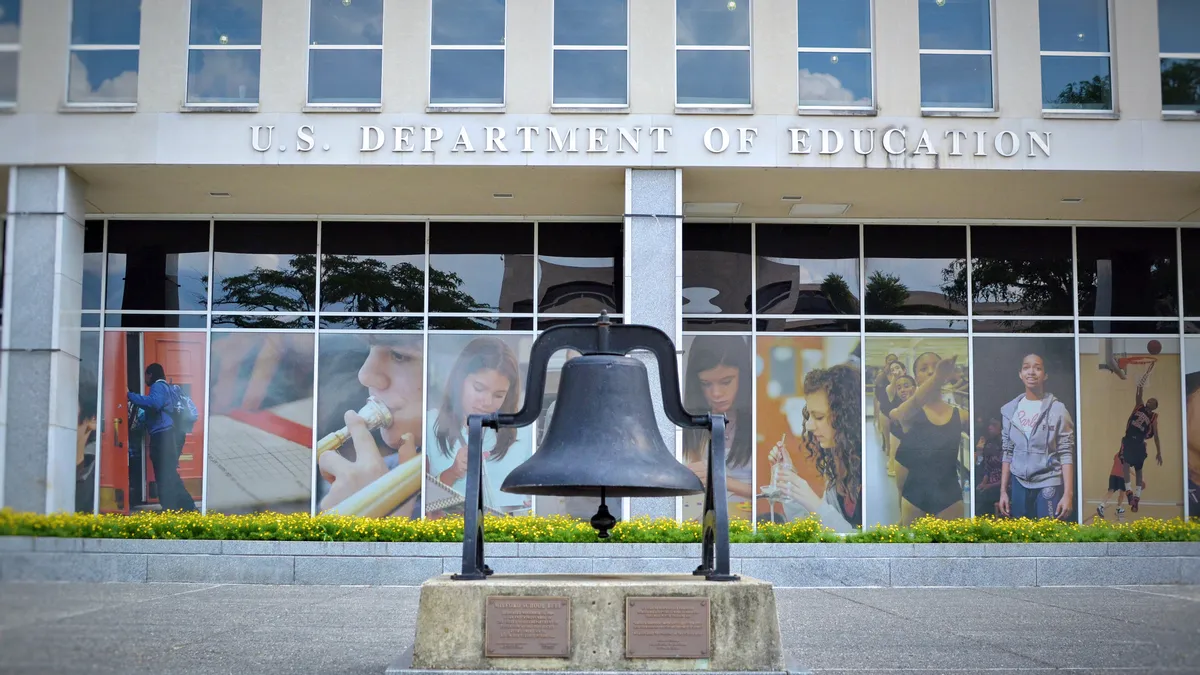Dive Brief:
- The U.S. Department of Education has reportedly chosen four universities and three financial services companies to pilot a prepaid debit card that students can use to pay for nontuition expenses out of their federal financial aid awards, according to Politico.
- However, officials at the chosen universities — Purdue, U of Georgia, Jackson State and U of California Riverside — told Politico that while they wouldn't prohibit their students from participating, they also wouldn't endorse it.
- The proposal has raised questions about how the data will be shared and whether students' use of the funds will be restricted, the publication noted. Officials have said they won't limit student spending beyond the bounds of the law and that the data would be aggregated and nonidentifying.
Dive Insight:
The pilot is running behind its initial timeline, which called for participants to be named last December.
It uses prepaid cards in an effort to give students an alternative to fee-bearing payment mechanisms and help colleges process student aid refunds faster. Students are expected to use it in much the same way as they would a traditional checking account, including issuing paper checks and accessing ATMs. It would tie into a newly launched mobile app that the department has said will include financial literacy information and let students manage their aid account.
The department's Federal Student Aid (FSA) office is trying to overhaul its financial services offerings to be mobile-friendly and raise awareness of its role in the aid process, according to its announcement of the pilot last year. Students can use the mobile app, which launched last fall, to apply for federal student aid.
However, the pilot's initial announcement was met with criticism that the office was overstepping and should focus on other priorities or improve existing student aid access points, Inside Higher Ed reported at the time. For instance, the publication noted, some students already receive a college-issued debit card that lets them access student loan funds, but those include fees for some uses.
Agreements between colleges and banks have caught flak in recent years for the fees captured by institutions in exchange for giving banks access to students as potential customers, some of whom may be unaware of their full breadth of banking options. The Wall Street Journal highlighted some of those agreements in a 2018 report, a few years after schools were required to start posting details of those arrangements.
Annual fees charged to students that bank through their institutions ranged from less than $2 to more than $90, according to the Journal's analysis.
Students at institutions where banks paid to market to the campus, and had more than 250 accounts, paid more than double in annual fees ($34.34) than did students at colleges that didn't have paid marketing agreements ($15.11), according to a report out earlier this year from the U.S. Public Interest Research Group, an advocacy organization.
Around 1.1 million students still use such cards, the group noted. Its analysis found that more than half of students at 10 of the 95 schools that had paid marketing agreements had a campus debit card account.
"While students always have the option to bank elsewhere, aggressive marketing may give students the false impression that they need to open an account with their school’s preferred bank," the authors wrote.
The Ed Department has not yet responded to Education Dive’s questions about the pilot sent Tuesday.














